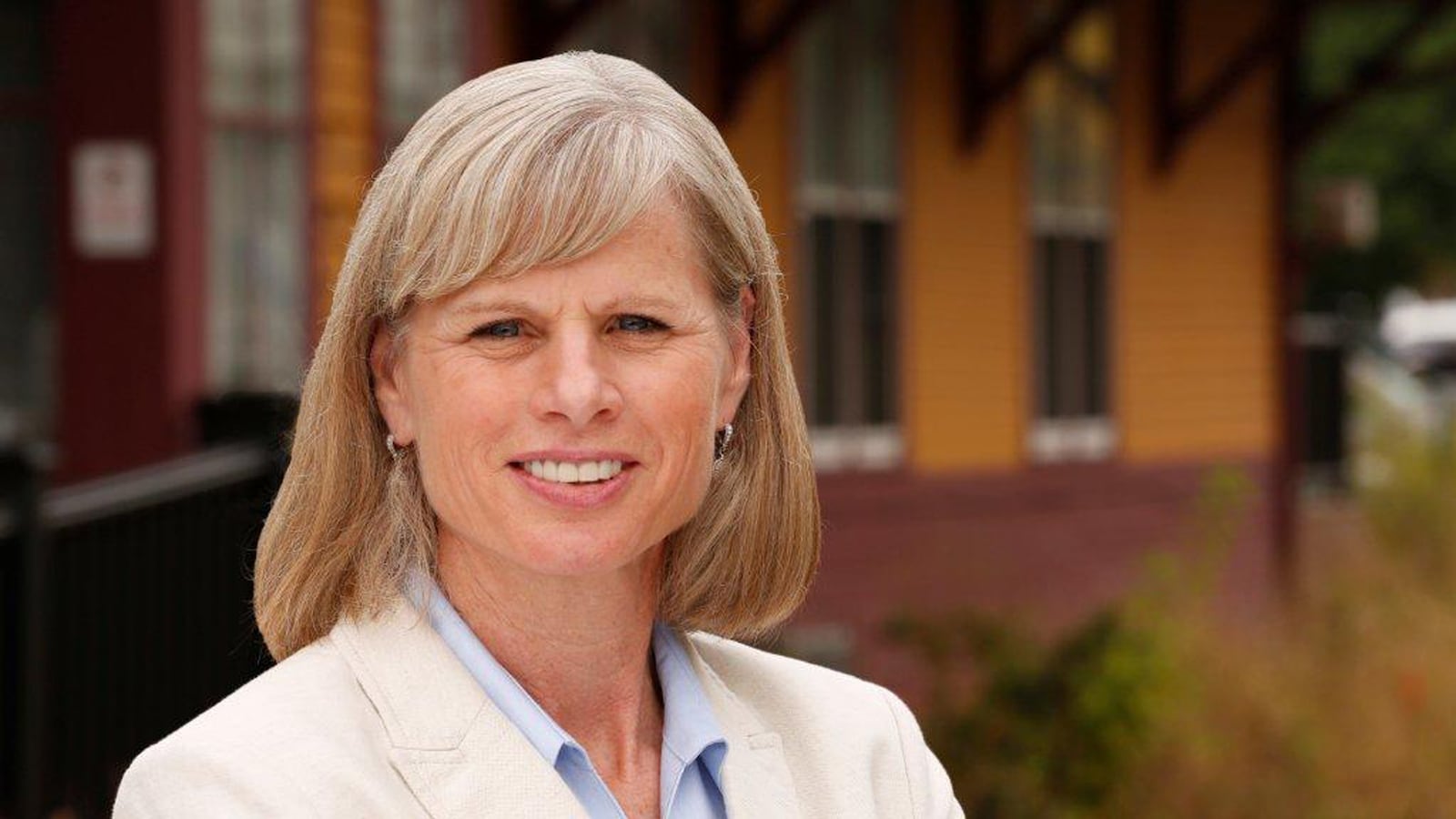Republicans call her “Millionaire Mary,” but Mary Burke has plenty of assets aside from her wealth to make her a strong contender to derail the reelection of Wisconsin Gov. Scott Walker, along with his dreams of the presidency. Polls show the former Trek Bicycle executive either tied with Walker or trailing by just a few percentage points, while the Republican governor, who weathered a recall election in 2012, looks headed for a closer race than anyone expected.

“Because of the divided electorate, this is going to be really close,” Burke told The Daily Beast. In the seven months since she announced her candidacy, the Democrat has put nearly 30,000 miles on her Ford Escape traveling the state. “It’s a good race of contrasts,” she says, citing her private sector business experience and her support for issues of particular interest to women, including access to abortion clinics.
“The things he has done with women’s choice issues puts Wisconsin right there with Mississippi,” she said over an iced tea Tuesday afternoon. Burke, who was in Washington for an Emily’s List dinner that night, has the pro-choice group’s endorsement, and it is making a big push to elect more Democratic women as governors.
“We only have one,” Burke marvels. “Who would have thought, with all the progress that’s been made,” that New Hampshire’s Maggie Hassan would be the only Democratic woman serving as governor. (Republicans have three.) Wendy Davis, the courageous state legislator running for governor in Texas, has been in the media spotlight, but she’s got a tough uphill race in a red state, while Burke, with a blend of private sector and public service, is ideally cast to give Walker a serious challenge.
Republicans who cite the governor’s vindication in the recall vote overlook the fact that 2014 is a completely different electoral climate and that his challenger is a very different candidate from the machine Democrat who twice lost to Walker. Burke is a fourth-generation Wisconsinite: “I grew up wanting to be a businessperson like my dad,” who co-founded Trek Bicycles when she was 17. Before that he had two other businesses. “I was really focused,” she says, studying finance at Georgetown University and then attending Harvard Business School.
After a few years living and working in New York as a consultant, she returned home to work for the family business. In a book about their father, One Last Great Thing: The Story of a Father and a Son, a Story of a Life and a Legacy, her brother wrote that in 1989, when Trek decided to expand to Europe, “I hired my sister, Mary, the brains of the family, to move to Europe and run the business.” She estimates that she expanded her division from $3 million to more than $50 million in sales, and in 2005, she was appointed commerce secretary by then-Gov. Jim Doyle, a Democrat.
“I think I just work hard,” she says, dismissing her brother’s estimation of her as the brainy one. “I wasn’t one of those people who got good grades without doing anything. I was always a worker.” Asked what her campaign is about, she says, “It’s jobs, it’s women—I come at that not only as a business executive. I’m a problem solver. Where do you want to get to, where are you now? Let’s get all the options out on the table, and let’s choose the best one. I don’t care whether it’s Republican or Democratic. It’s not how I approach things.”
Burke began volunteering in the community when she was a teenager, and served as president of the Boys & Girls Club. After she created an education initiative to open the door to college for low-income teens, she was recruited to run for the Madison school board, a race that she won in 2012 with the help of $128,000 of her own money. “Millionaire Mary, they’re just using that,” she says of Republican efforts to denigrate her wealth. “I have been very clear that what I can put in is a fraction of what’s needed,” she says. So far, she’s contributed $400,000 of her own money to her gubernatorial race.
Walker is not hurting for money. He’s been a darling of the Republican establishment and Tea Party wing alike after staring down the unions in 2012. More than half of his money comes from out of state. But he is vulnerable on a range of issues. On Tuesday, a federal judge struck down the state’s voter ID law; a state court had already blocked it. Walker had said that if the courts ruled against the law, he would call the legislature back into session to rewrite it, but that could prove a bridge too far. He has cut way back on early voting, ended weekend voting, and repealed an “Equal Pay Enforcement Act” passed by Democrats when they were in charge.
His promise to create 250,000 jobs in his first term is well out of reach, and Burke says of his job plan, “I’ve seen eighth-graders’ term papers that are more thoughtful.” Her five-point jobs plan promotes “industry clusters” that align public policy with work force development and export policies: “I’m focused on making things work.” She says Walker’s refusal to accept Medicaid expansion makes “no common sense and no economic sense,” and his turndown of $800 million in federal money to build high-speed rail service to connect to Chicago was “definitely just political. We could use those jobs.” At 55, Burke is a political novice, and in a polarized electorate, that might be a winning formula.





